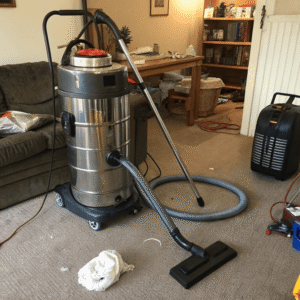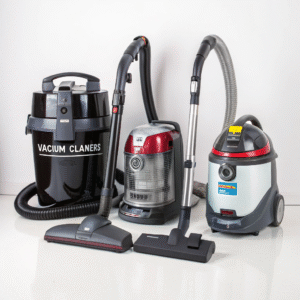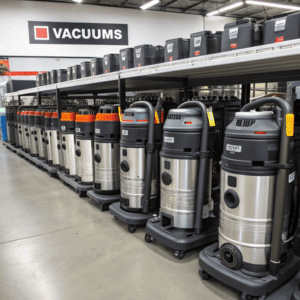Commercial: What Does It Really Mean in Daily and Business Life?

The word “commercial” pops up everywhere—from The word “commercial[^1]” pops up everywhere—from advertisements to business deals. Still, many people don’t know what it truly means or where it applies.
[^1]: Understanding the term 'commercial' is crucial for navigating business and advertising effectively.
to business deals. Still, many people don’t know what it truly means or where it applies.
“Commercial” means anything connected to buying, selling, or making money. It refers to activities, products, or businesses done for profit, instead of for personal, artistic, or charitable reasons.

I often heard “commercial” thrown around during my first days in the mold industry, mostly in meetings about new projects or product launches. At first, I thought it simply meant “big business.” Over time, I learned it covers a lot more. If you want to succeed in manufacturing or any business, it’s vital to understand exactly what “commercial” means and how it differs from personal use or other types of activity. Let’s break down the details so you can use the word with confidence.
What Do You Mean by Commercial?
Hearing “commercial” in a meeting or a contract can be confusing if you’re not clear on its meaning. What exactly are people talking about?
“Commercial” means related to business and profit-making activities. It covers things made, sold, or used for business rather than personal or private use.

If someone talks about a “If someone talks about a “commercial property,” they mean a building used for stores, offices, or anything that brings in money. If you see “commercial use only[^1]” on a product label, it means that product is designed for work, not home
[^1]: Exploring this concept helps clarify product applications and ensures proper usage in business settings.
,” they mean a building used for stores, offices, or anything that brings in money. If you see “commercial use only” on a product label, it means that product is designed for work, not home. In my work with clients, we often make adjustments so a mold or part can handle long shifts, high use, and tough customers—much more than a personal or home product would need. Here is a quick way to see the line:
| Context | Commercial Use | Personal Use |
|---|---|---|
| Activity | Selling, trading, making profit | Home, family, private hobby |
| Products | Heavy-duty, built for business | General, light, for home use |
| Buildings/Spaces | Offices, factories, shops | Homes, apartments |
Thinking “commercial” sharpens your mind to what’s needed to sell, succeed, and last longer in real-world business.
What is the Other Word for Commercial?
Maybe you hear “commercial” a lot but see other words in official documents or ads. Are there common replacements, and do they mean the same thing?
Words like “business,” “industrial,” “trade,” and “corporate” are often used instead of “commercial,” depending on the situation. All suggest a focus on business activity or profit.

Language can be tricky, especially if English isn't your first language. When a client asked me about “Language can be tricky, especially if English isn't your first language. When a client asked me about “industrial grade[^1]” equipment, they were really asking if it was “commercial” quality. “Business” gets used for general activities
[^1]: Understanding 'industrial grade' can help you choose the right equipment for your business needs.
” equipment, they were really asking if it was “commercial” quality. “Business” gets used for general activities. “Trade” appears in contracts or international business. “Corporate” leans more towards company-wide or large-scale activities. “Industrial” often means heavy-duty or suitable for factories, but it overlaps with commercial when talking about products or sites for sale. Here’s a table to show common “commercial” synonyms and where you might see them:
| Word | Common Use | Example Phrase |
|---|---|---|
| Business | Anything profit-oriented | “Business loan” |
| Industrial | Factories, manufacturing | “Industrial cleaner” |
| Corporate | Large companies, legal context | “Corporate tax” |
| Trade | Selling, markets, global business | “Trade fair” |
Sometimes these words are interchangeable with “commercial,” but sometimes they have special meanings. Always check context.
What is a Commercial Product?
You hear the phrase “commercial product” a lot in design, sales meetings, or while researching new tools. What does it actually mean?
A “commercial product” is made for selling to businesses or the general public to make a profit. These products are built for frequent, demanding use in workplaces or markets.

In product design, calling something a “In product design, calling something a “commercial product” sets clear expectations. It won’t be a prototype or test sample; it has to be reliable, safe, and work day after day. For instance, a commercial coffee machine[^1] will handle hundreds of cups each day in a café—far beyond any home model’s ability
[^1]: Exploring the features of commercial coffee machines can provide insights into their reliability and performance in high-demand environments.
” sets clear expectations. It won’t be a prototype or test sample; it has to be reliable, safe, and work day after day. For instance, a commercial coffee machine will handle hundreds of cups each day in a café—far beyond any home model’s ability. In my company, when we move a mold from sample to “commercial,” we make sure it can survive high-volume production and real customer complaints. Check out how “commercial products” stand apart:
| Feature | Commercial Product | Consumer/Private Product |
|---|---|---|
| Durability | High, frequent use | Light, occasional |
| Safety Standards | Strict, certified | Meets home requirements |
| Target Market | Businesses, organizations | Households, individuals |
| Support & Warranty | Often more comprehensive | Usually limited |
Anytime you see “commercial product,” know it will be built tougher, marketed wider, and judged by higher business standards.
Conclusion
“Commercial” always means business—it signals higher standards, larger scale, and a clear focus on making and selling for profit.



